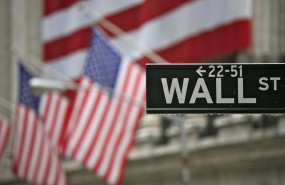- This Wednesday it closed above the key level of 9,765
- Wall Street ended yesterday with outstanding hikes

The Ibex 35 has risen this Thursday by 0.38% to stand at 9,829 points, driven mainly by banks. The selective has experienced strong increases throughout the session after going over the resistance of 9,765 points in closing prices on Wednesday. Now it looks towards the 10,300 points.
- 11.473,900
- 0,33%
The bank has led the gains this Thursday. The value that increased in value the most was Caixabank (+ 4.25%), followed by Bankia (+ 2.64%) and BBVA (+ 2.02%). But Sabadell (+ 1.68%) and Bankinter (+ 0.50%). In contrast, Banco Santander has yielded more than 0.2%. Credit Suisse has predicted that it will gain up to €10,000m in 2020 thanks mainly to the Brazilian market. Meanwhile, the Spanish risk premium stands at 95 basis points.
Repsol has risen close to 2% after convincing analysts with the updates of its Strategic Plan for 2020 that it presented yesterday.
WAITING FOR THE NEW COMPONENT
On the other hand, the companies that have dropped the most this Thursday at the Ibex have been DIA, Arcelormittal and Inmobiliaria Colonial. Meanwhile, it is expected that after the close it will be known which company will replace Abertis in the Ibex.
Regarding the main board, it should be mentioned that the OHL construction company has fallen by 9.2% after yesterday the Villar Mir Group sold 12% of the company's capital and, consequently, reduced its participation in it. up to 38.3%.
OTHER STOCKS
The rest of the stock exchanges of the Old Continent have finished with lower earnings than the Ibex. Except the German Dax 30, which has closed with very slight losses.
It should also be noted that Wall Street closed this Wednesday with significant increases (Dow Jones: + 1.40%, S & P: + 0.86%, Nasdaq: + 0.67%) and that in Asia there has also been a clear dominance of the green numbers this dawn. However, experts point out that Europe behaved with more weakness during the last session (the Ibex was unmarked) pressured by the European Central Bank (ECB) and its warnings of an imminent announcement of the end of the QE (quantitative easing) as a result of the latest statements by the central bank's chief economist, Peter Praet.
This Thursday, the US Dow Jones index continues to rise (+ 0.5%), but the Nasdaq falls and stops its good run of the last few days at the close of the Spanish market.
POLITICS AND MACROECONOMICS
This Thursday the negotiations around Brexit have taken the main focus. The United Kingdom will publish today its plan to avoid a hard border with Ireland, according to the BBC. The Financial Times, points out that Theresa May's plan regarding Ireland has generated a "serious dispute" between the British 'premier' and the Brexit minister, David Davis.
In Italy, the Bilderberg meeting has taken place, bringing together business and political leaders, both European and American, and which is designed to foster transatlantic cooperation.
Finally, regarding the macro agenda, the GDP of the Euro Zone has grown by 0.4% up to March, three tenths below the result at the end of last year.
TECHNICAL ANALYSIS
José María Rodríguez, technical analyst at Bolsamanía, explains that "the Ibex closes well away from the session's highs, and does so just after bouncing / adjusting 61.8% of the previous drop, which means that the highs of this Thursday's session is an important level of resistance that probably will not be easy to overcome (9,940)."
"And above we have the MM200 daily (10,070) and of much greater relevance the maximum of May in the 10,290-10,300 points," he adds. For this reason, he says that "we should remain wary because the fact that they have not attacked the annual minimums does not mean that they can not do it later".
"Without a doubt, the fact that the minimums of last week (9,400) have slowed slightly above the annual minimums (9,327) is important, we have a first growing maximum, which leaves the door open to the future the price can draw us some figure of return ", indicates the expert.
Meanwhile, for Rodriguez, "the problem with which we are in the short term is that the most important resistance is at the origin of the fall, the 10,290 points, or what is the same, only above this we can speak of a change in trend, to bullish ".
"Based on the Santander graph, this has filled (not closed) the bearish gap on Tuesday of last week, by definition resistance, and there it has stopped in the dry, for all this and taking into account how much our index depends on banking, it is convenient to remain prudent, there is still a lot of material to be cut ", concludes the technical analyst.




